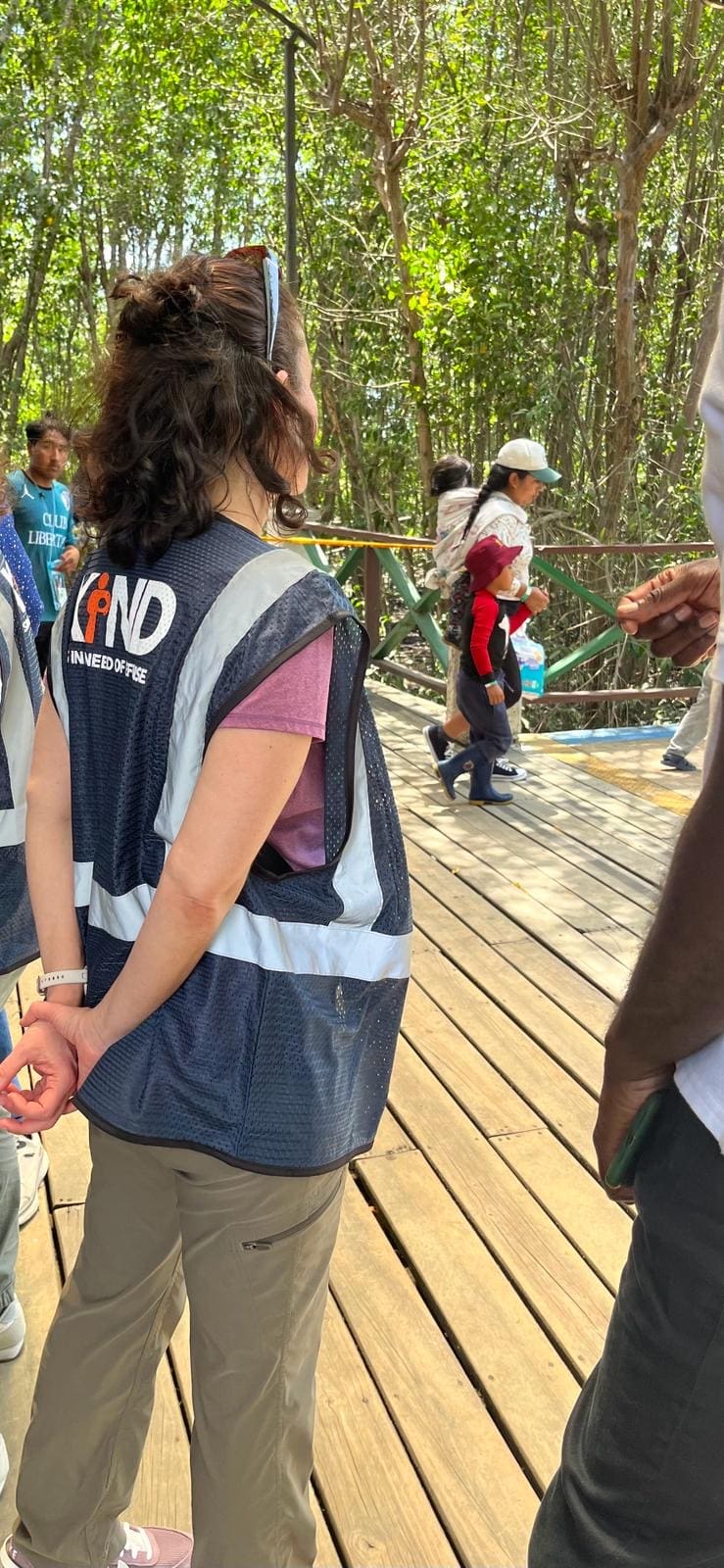Last month, KIND’s Vice President of Policy and Advocacy Jennifer Podkul and Senior Director of Legal Protection Laura Just traveled to Colombia to investigate the situation of unaccompanied children migrating through South America towards the Darien Gap. The Darien Gap, a narrow piece of jungle between Colombia and Panama that connects Central and South America, has become a major global migration route for people from all over the world attempting to reach North America.

The trip to Colombia was a follow up from a similar visit in November 2023 to the northern end of the Darien Gap in Panama. There, Jennifer, Laura, and two other senior KIND staff saw people, including children and families, exiting the Darien Gap in Panama, tired and ragged from the treacherous trip. “We saw kids coming out of the jungle hurt, traumatized, and often separated or abandoned. We wanted to see what preventative measures could be taken at the southern end of the Darien Gap to change outcomes for children,” Jennifer explained. The team decided to travel to Colombia to determine what prevention work, if any, would be possible to increase protection for children on the move.
Over the course of their trip, Jennifer and Laura observed the landscape of child migration at the southern side of the Darien Gap and in Colombia, researched what service providers there are doing, and assessed how KIND might be able to collaborate to help migrants and those seeking asylum make informed choices and enhance child safety. They found that while governments and international organizations such as UNHCR, UNICEF, and World Vision are doing important work in the region, there are not enough resources to fully address protection needs for children on the move. Some service providers explicitly stated they do not know enough information about legal procedures for unaccompanied children in the region and would welcome more information on how to help them. One possible opportunity for KIND is to provide information and technical training to service providers on how to best care for unaccompanied children. 
“During our trip to Panama,” Jen said, “we saw people as they were leaving the Darien Gap, and they were in rough condition after such an arduous trip. In Colombia, we saw people before they entered the Darien Gap, clean, new crocs to withstand the rivers they will have to cross, ready to travel, and full of hope and optimism.” It is a heartbreaking situation and demonstrates the great lengths people are going to in search of safety, and how bad their situation must have been to leave their home and undertake such a difficult journey.
Jennifer and Laura also visited the Biden administration’s new Safe Mobility Offices (SMO) Initiative. The Safe Mobility Offices screen migrants and expedite refugee processing via the U.S. Refugee Admissions Program (USRAP) and provide information and/or referrals to humanitarian parole, family reunification, and labor pathways in Colombia, Costa Rica, Guatemala, and Ecuador. While a promising new development that could be replicated elsewhere, SMOs are not designed for kids and do not have child-specific procedures for unaccompanied children. KIND was able to add the Central American Minors (CAM) program as an additional legal pathway to screen people for at the SMO office in Guatemala. KIND will continue to explore how unaccompanied children could access protection through SMOs in other countries.
What is happening in the Darien Gap reflects how the dynamics of global migration are changing dramatically. Kids continue to be a large percentage of migrants, and KIND is working hard to respond to a changing situation to best serve children and engage regional protections for them.


